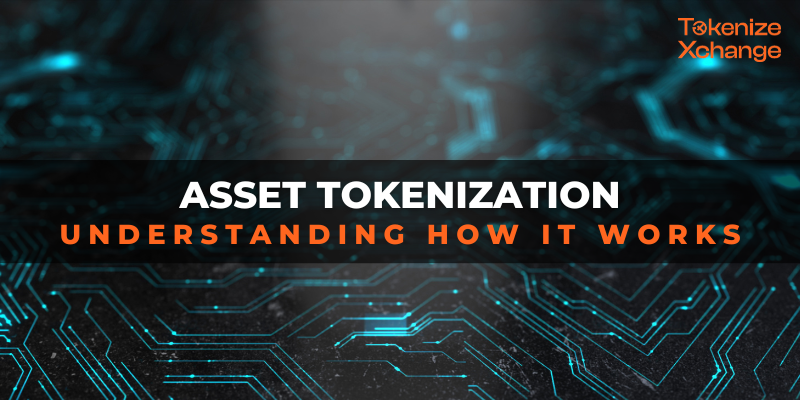
The introduction of blockchain technology has brought forward many innovative and groundbreaking solutions across various industries. One of the most significant and revolutionary applications of blockchain is asset tokenization.
What Is Asset Tokenization?
Asset tokenization is the representation of real-world assets as digital tokens on a blockchain. It’s like turning tangible assets, such as real estate, fine art, or even intellectual property, into digital units that can be bought, sold, and traded on a blockchain network. In other words, it is the process of converting real-world assets, such as physical assets or rights into digital tokens on a blockchain or distributed ledger.
Each token represents a portion of ownership in the underlying asset, making it divisible into smaller units. This process allows for fractional ownership where indivisible assets turned into tokens can have multiple owners. By tokenizing an asset, it becomes easier to trade, transfer, and track ownership, offering increased liquidity and potential benefits in terms of efficiency and accessibility.
How Does Asset Tokenization Work?
- Selection of the Asset: Any valuable asset, be it real estate, art, or even a classic car, can be considered for tokenization. The asset’s ownership structure and legal aspects are carefully examined to ensure compliance with regulations.
- Creating Digital Tokens: Once the asset is selected, it gets divided into smaller units or shares. Each of these units is then represented as a unique digital token on the blockchain. These tokens can have different values and ownership rights, depending on the fraction of the asset they represent.
Types of Tokens:- Equity Tokens: These tokens represent ownership in an asset, typically in the form of equity shares. In the case of real estate, an equity token might entitle the holder to a share of rental income and potential capital appreciation of the property.
- Utility Tokens: Utility tokens provide access to a specific product or service within a platform or ecosystem. While not necessarily representing ownership, they serve as a form of digital access or utility, like pre-purchasing services or products.
- Security Tokens: These tokens are backed by real-world assets, such as real estate, fine art, or commodities. Security tokens are subject to regulatory scrutiny and are often considered as investment contracts, offering potential financial returns to investors.
- Governance Tokens: Governance tokens grant holders the right to participate in decision-making processes within a decentralized platform or organization. Token holders can vote on proposals or changes to the platform’s rules and protocols.
- Debt Tokens: Debt tokens represent a debt obligation, where investors lend money to the issuer in exchange for interest payments over time. These tokens can be traded, allowing investors to buy and sell their debt positions.
- Smart Contracts: Smart contracts, which are self-executing contracts with predefined rules, govern the behavior of these tokens. They ensure that the token holders’ rights, such as dividends or voting power, are automatically enforced without the need for intermediaries.
- Offering to Investors: These newly created digital tokens are offered to investors through a regulated platform or exchange. Investors can now buy, trade, or sell these tokens, gaining exposure to the underlying asset’s value.
Real-World Use Cases of Asset Tokenization
- Real Estate: Tokenizing real estate properties enables fractional ownership, making high-value properties accessible to a wider range of investors and providing opportunities for diversification within the real estate market.
- Art and Collectibles: Tokenizing valuable artworks or rare collectibles allows art enthusiasts to own a share of these assets, creating new investment possibilities in the art market.
- Investment Funds: Traditional investment funds can be tokenized, allowing investors to trade fund shares more efficiently and with reduced administrative overhead.
- Renewable Energy Projects: Tokenizing renewable energy infrastructure, such as solar farms or wind parks, attracts a diverse range of investors interested in sustainable investments.
Asset Tokenization in Malaysia
Asset tokenization in Malaysia has been on the rise since the introduction of regulatory frameworks for digital securities offerings (DSOs) in 2019. It involves converting real-world assets, like real estate and investment funds, into digital tokens on blockchain networks. These tokens are sold to investors, ensuring transparency and investor protection. Asset tokenization has the potential to democratize investment opportunities, drive economic growth, and increase liquidity in various sectors, making high-value assets more accessible to a wider range of investors in the country.